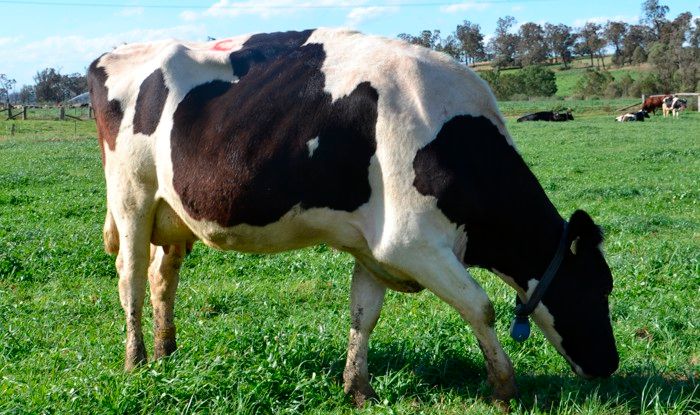Ideal age of first calving

Dairy UP PhD student, Andrew Lean is investigating the effect of age a heifer calves for the first time on lifetime milk production, health and fertility.
Through his literature review he has confirmed many benefits from calving earlier (at 2 years or even younger) as long as heifers are reared to achieve target liveweights.
The main benefits include earlier return on investment in breeding replacements, fewer unproductive animals on farm, improved lifetime production, improved reproductive performance, reduced generation interval (faster genetic gain) and marked reduced greenhouse gas (GHG) emissions intensity by producing more milk across an animal’s lifetime.
Research has found that traditional concerns about calving heifers earlier, such as increased calving difficulties, fatty udder syndrome and decreased production, are largely unfounded, under optimum farm and animal management conditions. For example, research has demonstrated an improvement in calving ease for heifers with an age of first calving of 18-22 months.
Alternatively, those with an age of first calving at 26-months or more have an increased risk of calving difficulties – mostly attributed to a higher body condition score and excess fat. Fatty udder syndrome can be overcome if heifers are fed adequate protein in their diet.
Lower production in a heifer’s first lactation – potentially due to earlier calving – also isn’t a concern because her lifetime production is greater, and she has less “unproductive” time.
About Dairy UP
Dairy UP is a collaborative research, development and extension program for the NSW dairy industry. It aims to unlock the potential of pastures, cows, water and milk to increase productivity and profitability, and de-risk the industry and develop new markets.
